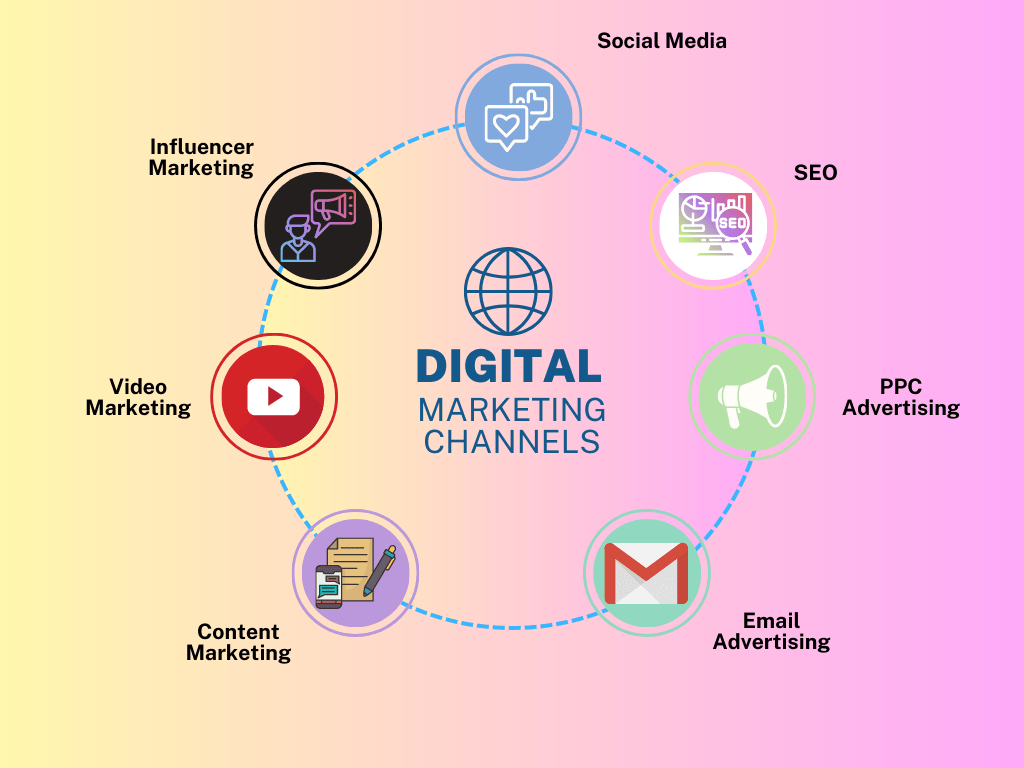Digital marketing encompasses all marketing efforts that utilize electronic devices or the internet. It’s an umbrella term for a wide range of online strategies and tactics used to promote products or services. Digital marketing leverages digital channels such as search engines, social media, email, websites, mobile apps, and other digital platforms to connect with current and prospective customers.
XYZ
- abnjg
- mbkjblk;l
- jbkjnm
- bknlm’,

7 Effective Digital Marketing Channels
Some common components of digital marketing include:
- Search Engine Optimization (SEO): The process of optimizing a website to rank higher in search engine results pages (SERPs) for relevant keywords.
- Content Marketing: Creating and distributing valuable, relevant content to attract and engage a target audience. This can include blog posts, articles, videos, infographics, and more.
- Social Media Marketing: Using social media platforms like Facebook, Twitter, Instagram, LinkedIn, and others to promote products or services, engage with audiences, and build brand awareness.
- Email Marketing: Sending targeted messages and promotional content to a list of email subscribers to nurture leads and encourage customer loyalty.
- Pay-Per-Click Advertising (PPC): Advertising model where advertisers pay a fee each time their ad is clicked. Common PPC platforms include Google Ads (formerly AdWords) and social media advertising platforms.
- Affiliate Marketing: Partnering with other businesses or individuals (affiliates) to promote products or services in exchange for a commission on sales generated through their referral.
- Influencer Marketing: Collaborating with influencers or individuals with a large and engaged following on social media to promote products or services to their audience.
- Online PR (Public Relations): Using online channels to manage and improve a brand’s reputation, interact with the media, and address any negative publicity.
Digital marketing offers businesses the ability to reach a vast audience, target specific demographics, track and analyze campaign performance in real-time, and adjust strategies accordingly. It’s become an essential component of modern marketing strategies due to its effectiveness and ability to adapt to changing consumer behaviors and technological advancements.
